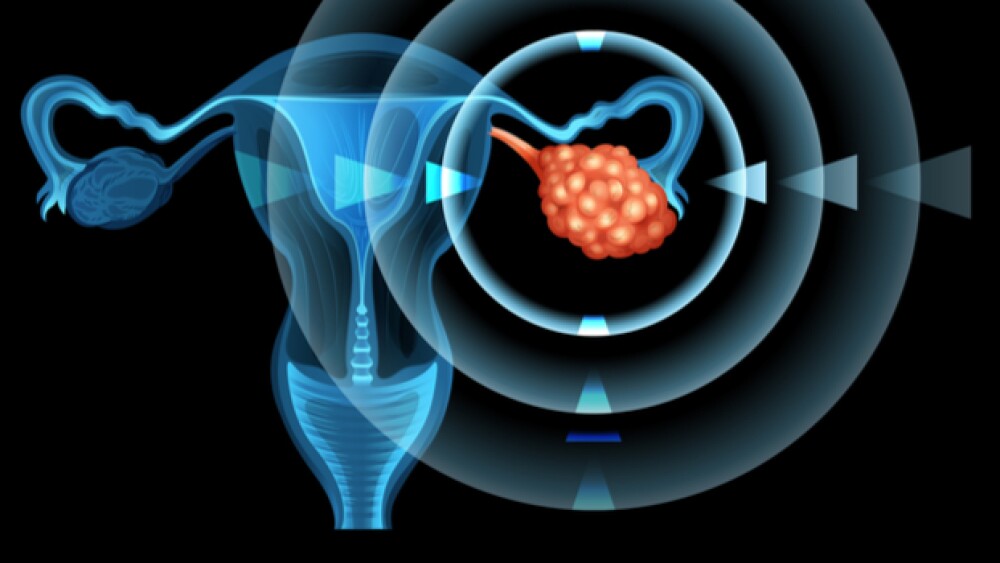An ovarian cancer treatment co-developed by Germany’s Merck KGaA and Pfizer failed to meet endpoints for overall survival and progression-free survival in a Phase III trial.
An ovarian cancer treatment co-developed by Germany’s Merck KGaA and Pfizer failed to meet endpoints for overall survival and progression-free survival in a Phase III trial.
The two companies said Bavencio (avelumab) used alone or in combination with pegylated liposomal doxorubicin (PLD), a type of chemotherapy, did not meet the pre-specified endpoints compared to PLD alone in patients with platinum-resistant or -refractory ovarian cancer. The companies said that signals were observed in the combination treatment arm relative to PLD, which will warrant further analysis.
Chris Boshoff, head of Immuno-Oncology, Early Development and Translational Oncology at Pfizer Global Product Development, said the Phase III JAVELIN Ovarian 200 trial enrolled a “high proportion” of patients who have an aggressive form of ovarian cancer. Those patients had had no response to prior platinum-based chemotherapy. That particular patient population has been very difficult to treat and because of that, is not typically included in Phase III ovarian cancer trials, Boshoff said. The average life expectancy for women with this type of ovarian cancer is typically a year.
“We initiated the JAVELIN Ovarian 200 trial as the first Phase III study of a checkpoint inhibitor in the platinum-resistant or -refractory setting recognizing these patients have the most pressing need for new treatment options. The results speak to the significant challenges these women face,” Boshoff said in a statement.
More than 295,000 women are diagnosed with ovarian cancer each year. When it is diagnosed, it is often in advanced stages, which can make it difficult to treat. Approximately 70 percent of patients with ovarian cancer who receive the standard-of-care frontline, platinum-based chemotherapy, will relapse in the first three years, the companies said. After that first relapse, up to one-fourth of patients have platinum-resistant or -refractory disease, and eventually, almost all patients will become platinum-resistant. The five-year survival rate ranges from approximately 30 percent to 50 percent, but for those with metastatic disease, it drops to less than 20 percent, the companies said.
The Phase III JAVELIN trial included 566 women with ovarian cancer who are resistant or refractory to platinum chemotherapy. The primary objectives were to demonstrate superior OS or PFS for one or both avelumab-based treatment regimens compared with PLD. Bavencio is a PD-L1 checkpoint inhibitor. It has been approved for metastatic Merkel cell carcinoma and as a second-line therapy for advanced metastatic urothelial carcinoma.
Luciano Rossetti, Global Head of Research & Development at the Biopharma business of Merck KGaA, said that although the overall survival and progression-free survival results in the Phase III trial did not reach statistical significance, the study results indicate “potential clinical activity of the combination of avelumab and chemotherapy.” That potential clinical activity will be further analyzed, Rossetti said.
Despite the setback, Rossetti said the alliance of Pfizer and Merck KGaA remains committed to continuing to develop potential treatments in ovarian cancer. The two companies are conducting ongoing Phase III trials in previously untreated patients testing avelumab in combination with chemotherapy and, separately, one in combination with chemotherapy followed by maintenance treatment of avelumab in combination with a PARP inhibitor, Rossetti said in a statement.





